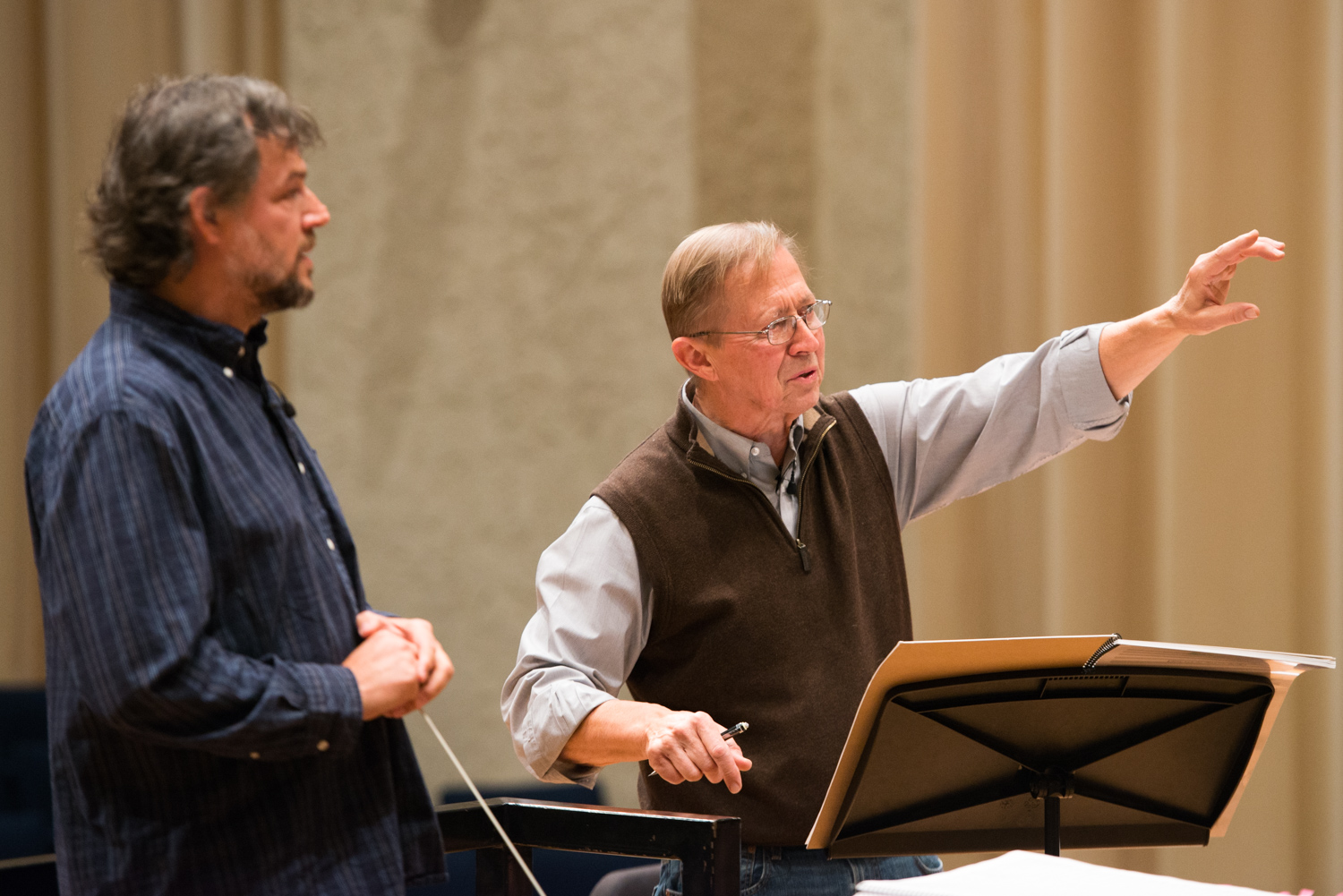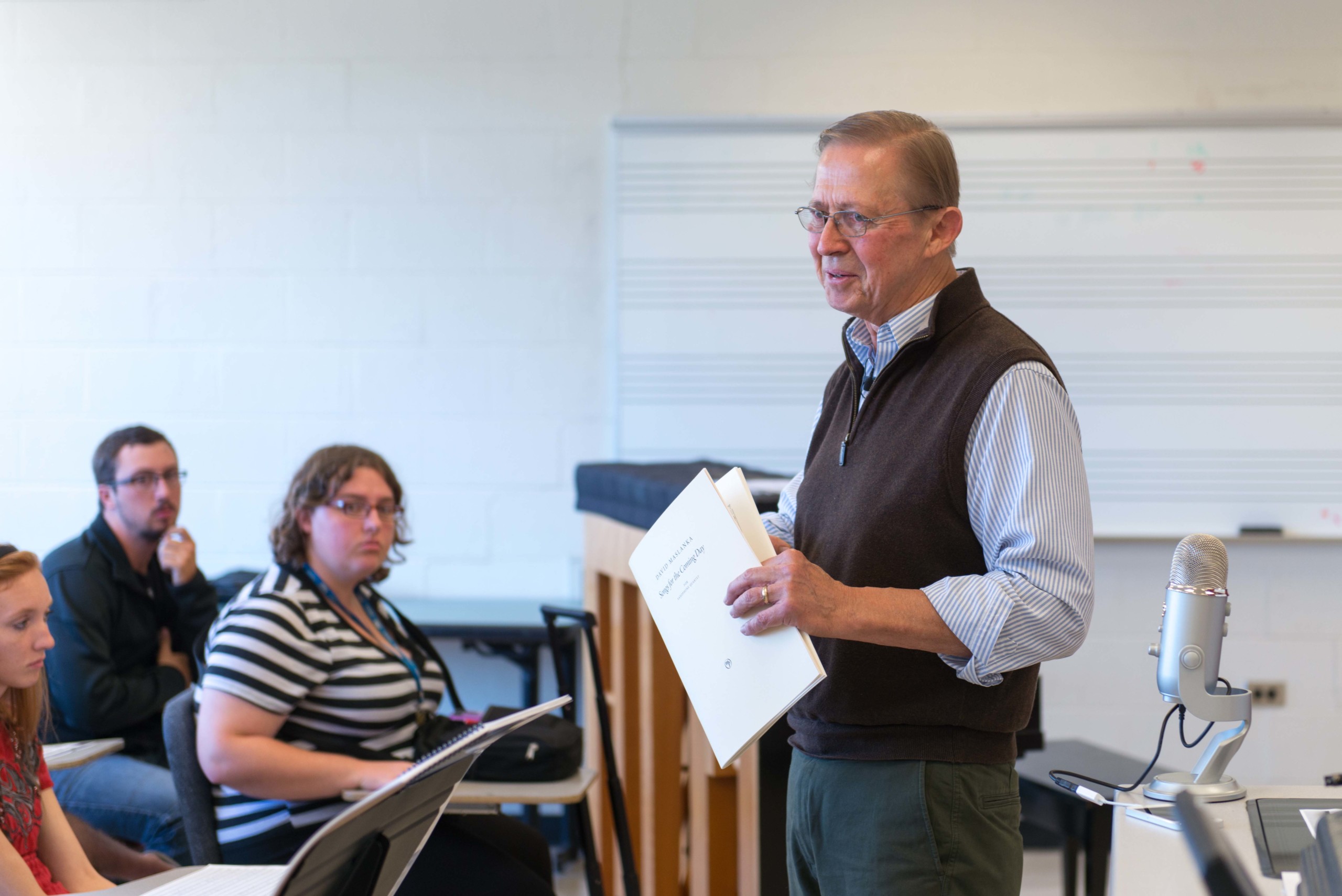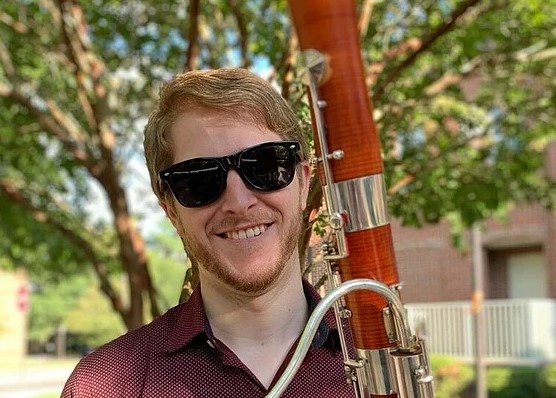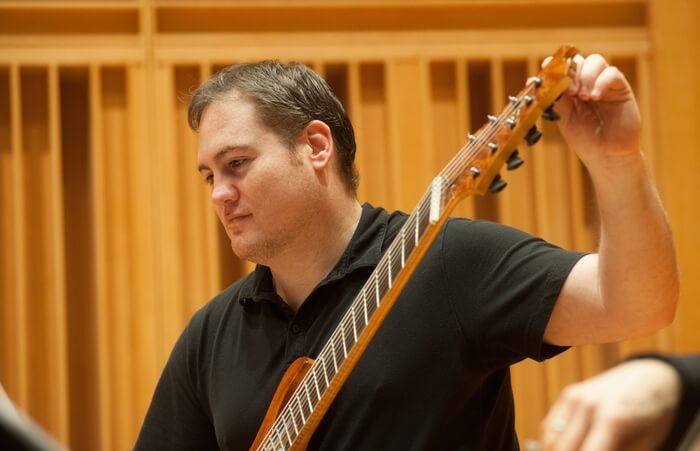Excerpts from letters to young composers
You ask about the soul nature of music, and are music and soul the same thing. Music is one of the expressions of soul. A person does not have to be consciously aware of soul connection for soul force to be expressed through that person. The conscious mind and the deep unconscious are two different things, but everyone has both of them. The unconscious can push its way into consciousness unbidden. Often this makes people do neurotic or crazy things – compulsive behavior of one kind or another. If a person is prepared artistically, then a sudden eruption of soul force might appear as a composition or a powerful performance. The person may have no idea where the force came from. This was my experience as a young composer. As I gained technical skill there would be sudden bursts of music that “appeared.” There was always the hard work of getting it composed properly, but fairly early on I learned to follow my instincts when something powerful began to happen. The impulse to write, having a “true voice”, and having the necessary technical equipment are all different issues. There are fine technicians who have no true voice, and people with true voice who have struggled with technique.
In my experience the feeling of a true voice may come spontaneously to a young composer, but the full and settled sense of it comes only with hard work, usually over a longish time. The composers who were fully formed by age twenty are extremely rare, and most of those underwent further transitions as they grew older. In my case the initial development period was from roughly age 18 when I started to compose, to age 28. I put “opus 1” on a piece when I was twenty, but the real debut piece, which came after ten years of composing, was my Duo for Flute and Piano, written in 1972. I wrote Symphony No. 1 as my doctoral piece at age 27. In retrospect it shows talent and a lot of good ideas – things that would continue to show up again and again over the years – but it wasn’t a fully formed piece. Symphony No. 2, on the other hand, showed up because the time was right in me to release a lot old emotional burdens. I didn’t know this as I was writing. I followed my instincts every step of the way, and wrote what felt right. It was only after the fact, after a very fine premiere performance, that I recognized through meditation that the piece was about coming to terms with loss. If I had started with the intellectual premise of loss, tried to make a piece about loss, I don’t think I could have succeeded. I have come to know since that every piece is about a soul issue. People who ask me to compose invariably have a soul need, whether they are aware of it or not. It has been my work, through meditation, to find the center of the need, and to make a music that embodies some part of the resolution of that need. I have learned to participate in, and with, my unconscious, but I can’t make it do anything. If the music turns out right, it seems to be the nexus point of a lot of issues, many of them seemingly unrelated or contradictory. I have no illusion about solving whole life problems for people, but the music seems to be a complex vibration that moves them to a different orientation at a point when they needed to be moved.
I have written a lot for winds because I have a basic affinity for the sounds, and because that is where the opportunity lay. Some people have an affinity for orchestra, find their stride early, and move right into performance opportunities. I think there is a measure of fate in this. String tone is powerful because of the homogeneous group of instruments. The overtones produced blend with, and reinforce, one another. Winds produce very distinct colors and clashing overtones. It is a struggle to achieve a sonorous blend. Strings can produce very soft dynamics at extremes of high and low. Winds cannot. Wind textures and blends have to created new for each circumstance, whereas the homogeneous string body a ready-made and pleasing quality in almost every circumstance. Yet winds and percussion offer terrific opportunities for new and subtle sound qualities. Some composers I know are terrified of writing for winds. The wind band is a very complex organism, and the color and balance issues take years of work to master. Finally there is no correct medium for a composer, only the inner voice which pushes to hear a certain sound quality.
This leads to the question of technology. Technology is neither good nor bad. All the standard instruments that we use are miracles of technology. Electronic technology is still so new that it has not been fully explored, and promises finally to be a huge open-ended evolution. It has not been fully assimilated into humanness yet. The question is not “should I” or “shouldn’t I”, but rather, does the technology enhance or detract from humanness? Some people have a direct affinity for electronic machinery, and have made a life around it. I had opportunity every step of the way to do synthesizers and computers, but had no affinity for it. It isn’t necessarily a generational thing, but my son Matthew is a whiz at computers. He has learned Sibelius thoroughly and is working for me as a copyist. He has started to compose, but not on paper. He gets it lined up in his head at the piano, or by thinking about it, then goes straight to the computer. I personally think there is something lost by not touching pencil to paper, but that’s my way. The thing that computer technology seems to allow is speed of production. This may be good for producing parts, but it is not necessarily a good thing for composing. Speed of composing doesn’t matter much, unless you are so slow that you are stuck, or so fast that you don’t allow the music time to mature and find its full expressive power. Once the piece is written there is no longer any time attached to it. It doesn’t matter whether it was written quickly or slowly. So it is useful to make it right, whatever time that takes. Some works happen quickly while others are a struggle. From the listener’s standpoint it should be impossible to tell which is which, and it doesn’t matter. You worried about losing ideas because you couldn’t get them down fast enough. They aren’t lost. They will come back in more developed form when they are ready.
Speed of composing
You cast the entire shape of the composition in a single session at the computer. You then accepted this as the shape of your piece and set about fixing it in place in full score. What you did amounts to an improvisation. This may be a useful first step in writing, but it is a best only a first step. It gives you a body of material, but all this material may not belong in the final piece. Each of the ideas, then, has to be allowed to grow over time so that the central issue of the piece can emerge, and all the parts line up properly. My composing process starts with what amounts to improvisation. I receive whatever wants to come out, and get it down in fragments. I will often generate a lot of material in this rambling, run-on way. Then I am drawn to what speaks the loudest and begin to explore ideas for their power. When a composition is finished there is most often a lot of stuff left over. Very good ideas don’t find their way into the piece and have to be abandoned. Sometimes these ideas are the core of other pieces. This exploring process takes time, and can be frustrating and nervous making. It’s the hard part that everyone wants to skip over. But nothing good happens without experiencing the chaos of the thing that isn’t formed yet, and can’t be formed by trying to force it to happen, or working too quickly.
Continuity in composing
The question of continuity is a tough one, and there is no easy answer. I think at its center is a deep need to get at the heart of things, to feel centered at the heart of the issues that move you. As a young person you may not even know what the issues are, only that you are compelled to grope toward some kind of expression. For those who are earnest about it this is most often a painful ordeal. Technique is important, but the urge to expression is the central issue. I have become a very competent technical composer over the years, but from the very beginning I was moved by the need to touch something real, and that need has guided the technical growth. One of the awful realities is that there seem to be dead ends and blank walls. One of my favorite analogies for composing is being in a pitch-black room of undefined size and shape and being required to find the nature of that room, and then to grow beyond it. Occasionally there are flashes of inspiration which keep you alive in the process.
You make the remark “It seems like every new idea I get has been done before, by me or someone else.” You have to consider the nature of language. Every word you have ever spoken was invented by others. Grammatical structure has evolved over centuries, and you as an individual user and maker of language can’t do much about it. Attempts at changing language wholesale always end in failure because there is a large impersonal inertia which keeps the language fundamentally what it is. From a “meaning” standpoint it has been suggested by psychological studies that in order form the meaning of a communication to be clear, at least 85% of the information communicated has to be familiar to the receiver. So in the face of this, how can a person be original? You have twelve half-steps of the equal-tempered system; you have the fundamental concepts of pulse and rhythm, the concepts of melody, counterpoint and accompaniment, the sounds of the common instruments and voices. What’s new? You are. You have not existed before in your current form. If you persist in your craft, your way of using the received materials of language will be unique. When I was 28 I discovered very surprisingly and suddenly that the C-major chord was mine. Its presence in my context made it express something uniquely mine. I have since discovered my unique voice fully within the terms of what must be described as received language. How do you find your own unique voice? By finding whatever musical idea intrigues you, holds your attention, gives you a strong feeling; by being absorbed in the moment as you compose.
For me the question of continuity has to do with an “inner reviewer” or “inner tester.” Is my attention held by every instant of my composition? Or is ther a nagging doubt about spots or sections? If there is doubt, I will open myself to as many possibilities as I can think of and see if I can find a better solution. It may be as simple as changing something local – a pitch, rhythm, or chord – or it may result in the restructuring of a whole area of a piece. I am able to let go of very good ideas if I can see that they don’t fir, or that they lead the piece in the wrong direction.
About form: I have come to feel that form is at heart not an intellectual matter. Theoretical abstractions are intellectual, but the composer constructing a new piece is flying largely by intuition – an intuition shaped by learning, but intuition nonetheless. The true form of a piece of music is built quite out of sight at some level of the unconscious. I think it is even a “body” thing and not a brain thing. The need of the brain is to discover the form and to notate it properly. This is where technique comes in. But most important is the ability to open your conscious mind to fully receive the impulse from the unconscious. This is what takes years of practice, and what makes a good composer sound “right.”
Continuity within a piece, from piece to piece, a sense of style and evolving style, all come from the ability of the individual to be fascinated by the moment of music in front of him or her. It is the fascination of the child with the pretty or intriguing object, whether that object has intrinsic value or not. I have often thought of myself as picking through the junk pile of left over musical stuff, or as sweeping up after others. I have become somewhat perverse in looking for musical value in the utterest of commonplaces.



